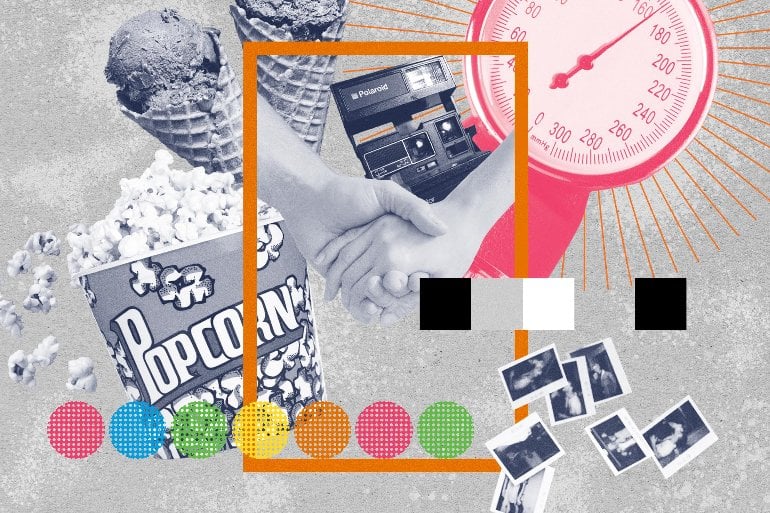Summary: Teens who find themselves in intense, controlling relationships, where they are denied healthy external friendships and self-discovery, have a higher risk for high blood pressure later in life.
Source: University of Virginia
New research from the University of Virginia has found that teens who have intense romantic relationships to the exclusion of self-discovery and healthy friendships may face high blood pressure later in life.
It is the latest finding from the lab of Joseph Allen, UVA’s Hugh Kelly Professor of Psychology. Allen and his team sifted through data from a longitudinal study of 184 participants that began in Charlottesville in 1998 when members of the study were just 13 years old.
Allen’s lab checked back in with a cohort of 146 participants at ages 17 and 19 to learn about their romantic relationships and later, between the ages of 29 and 31, they took respondents’ blood pressure measurements. The researchers found a direct, self-reported path from adolescent romantic intensity to higher adult blood pressure.
What’s more, they found that those who reported both intense adolescent relationships and high blood pressure later in life grew up with parents who exercised psychologically controlling behavior.
Allen said that’s a dangerous mix and described teens who follow that arc as being “in over their heads.”
“These are kids or people who are in relationships and kind of in over their heads. … It’s not just that they have a good romantic relationship. It’s that it’s a relationship that is sort of sucking up their time and energy up to an unusual degree,” he said.
Allen said that spending a lot of time alone with a teen partner could mean “you’re not spending time either on your own or with friends and doing other things.”
Having controlling parents is also part of the pattern, he said. They tend to make their teens feel guilty if they did not follow the rules. “So, you go from this overly controlling family, then you’re in these relationships that are super intense,” he said.
Study participants also reported having problematic friendships as young adults. “They had friendships that didn’t go so well, where there was a lot of conflict and arguing as opposed to just good, steady, close friendships,” Allen said. It’s as if the participants “never really learned how to have a good, close friendship.

“What we think is going on is that having relationships not go well is one of the more stressful things that humans experience, because we are such pack animals,” he said. “You know, you can have all the money in the world, but if your relationships are bad, you’re not going to be happy.
“So, we think it’s the stress of having these bad relationships, these problematic relationships that ultimately forecast [teens] having higher blood pressure later in life,” he said. “We don’t know if it actually caused it, but we’ve got a lot of evidence that the stress at different points was directly predictive of having higher levels of blood pressure.”
The findings were published last month in the Journal of Development and Psychology, published by Cambridge University Press.
It is just the latest in a long string of important findings from Allen’s lab about teen development. Other discoveries include that extreme stress during the teen years can lead to premature aging and that healthy teen friendships predict healthy adult romances. To date, the lab’s blockbuster discovery that has grabbed the most headlines is that teens who were viewed as “cool” in school had a rough road ahead.
By age 22, those once-cool teens were rated by their peers as being less competent in managing social relationships. They were also more likely to have had significant problems with alcohol and drugs, and to have engaged in criminal activities.
About this psychology and health research news
Source: University of Virginia
Contact: Jane Kelly – University of Virginia
Image: The image is credited to Ziniu Chen
Original Research: Closed access.
“Adolescent relational roots of adult blood pressure: A 14-year prospective study” by Joseph Allen et al. Journal of Development and Psychology
Abstract
Adolescent relational roots of adult blood pressure: A 14-year prospective study
Intensity in adolescent romantic relationships was examined as a long-term predictor of higher adult blood pressure in a community sample followed from age 17 to 31 years.
Romantic intensity in adolescence – measured via the amount of time spent alone with a partner and the duration of the relationship – was predicted by parents’ psychologically controlling behavior and was in turn found to predict higher resting adult systolic and diastolic blood pressure even after accounting for relevant covariates.
The prediction to adult blood pressure was partially mediated via conflict in nonromantic adult friendships and intensity in adult romantic relationships.
Even after accounting for these mediators, however, a direct path from adolescent romantic intensity to higher adult blood pressure remained. Neither family income in adolescence nor trait measures of personality assessed in adulthood accounted for these findings.
The results of this study are interpreted both as providing further support for the view that adolescent social relationship qualities have substantial long-term implications for adult health, as well as suggesting a potential physiological mechanism by which adolescent relationships may be linked to adult health outcomes.







